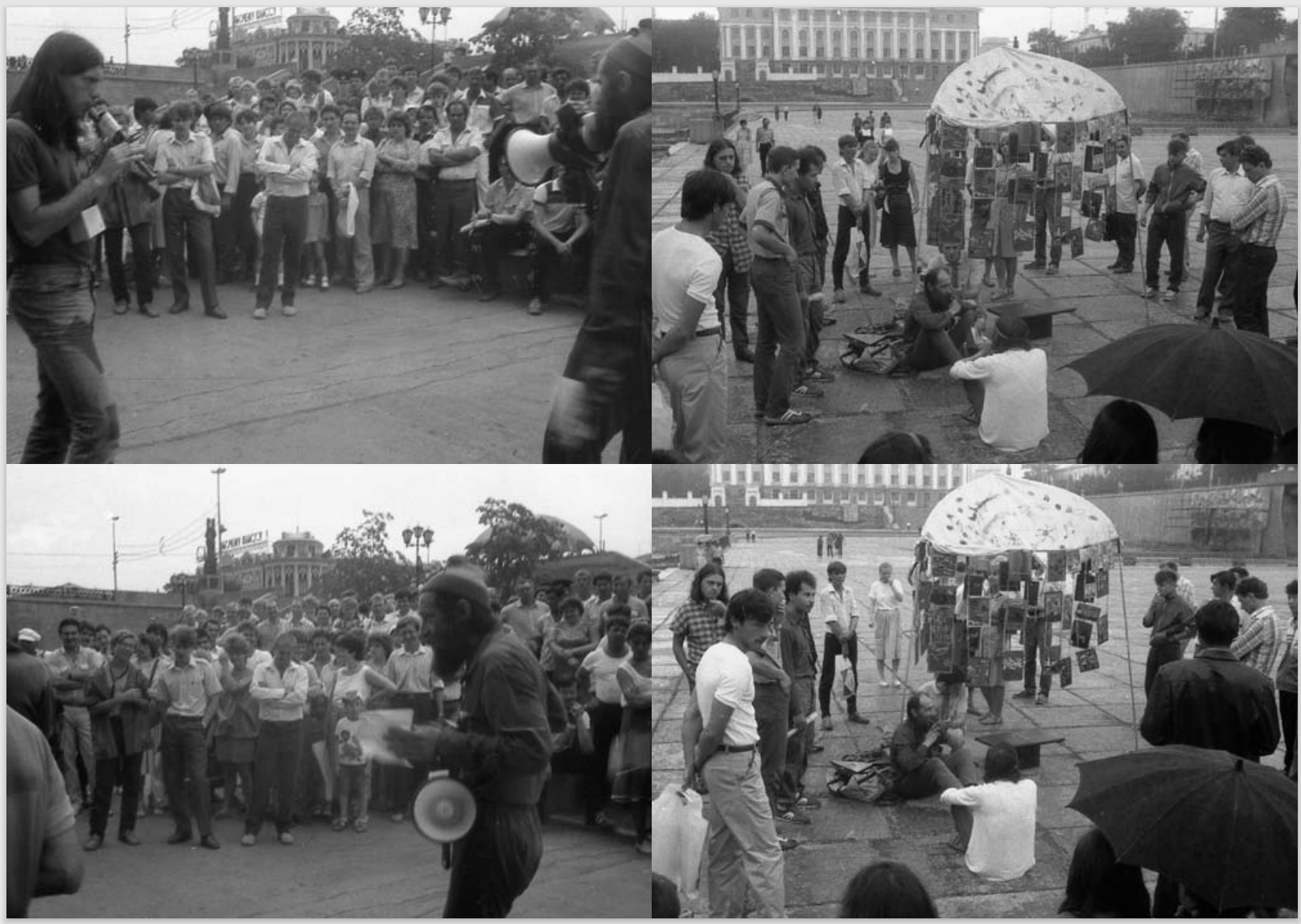Filed Under: Print > Visual arts > The “Kartinnik”/ ”Picture-man” society at the Dam boardwalk in Sverdlovsk, 1989
The “Kartinnik”/ ”Picture-man” society at the Dam boardwalk in Sverdlovsk, 1989

In 1989-1991, street artist B. U. Kashkin (1938-2005) toured under the name Kartinnik (“Picture-man”), participating in hippie and punk festivals with his “Punk-Skomorokh [jester]” performances. Under his leadership, a team of younger friends performed impromptu music shows, inviting the audience to participate; played folk instruments; improvised songs; and “won” Kashkin’s paintings from him by responding to his silly questions (often rhyming or absurdist) to the audience. So, for example, B. U. Kashkin might first recite a verse like Sleziatsia malen’kie glazki u krokodil’chika bez laski (“With little tears in weepy eyes the crocodile so lonely lies”), then ask if there were any crocodiles in the crowd—adding that, if so, they should come up to claim their gift. The first person to claim to be a crocodile received a wooden board painted by B. U. Kashkin’s circle featuring the corresponding poem.
B. U. Kashkin often performed in a complicated punk-jester outfit that included a T-shirt reading “I am the great Russian poet”—written in English, since, as B. U. Kashkin claimed, “ ‘they’ wouldn’t understand it otherwise.” The tours he led engaged the public both in counter-cultural contexts like hippie and punk concerts, and in normative public spaces like boardwalks, parks, and state-supported concerts and festivals.
Artist Alexander Shaburov (1965-), who participated in B. U. Kashkin’s performances and wrote the definitive book on the artist, B. U. Kashkin (1938-2005): Zhizn’ i tvorchestvo ural’skogo pank-skomorokha (The life and art of a punk-skomorokh of the Urals) (2015), recalls a poem that, instead of a crocodile, asked the crowd to volunteer any KGB agents or snitches that might be present. The outcome was an awkward pause, after which the crowd got in on the joke and someone offered themselves up—in jest or not—in order to get a painting. In this instance, B. U. Kashkin created a space for joking about violent reprisals against KGB agents and collaborators, something well within the realm of possibility in the precarious and intensely politicized period of the USSR’s collapse, but resolved the joke without violence. After all, the “snitches,” real or imagined, get presents too.